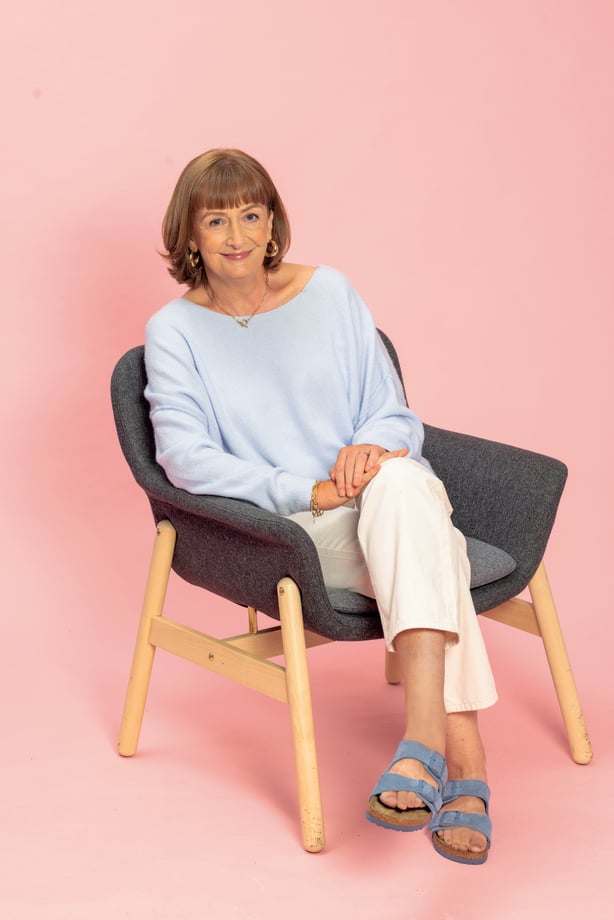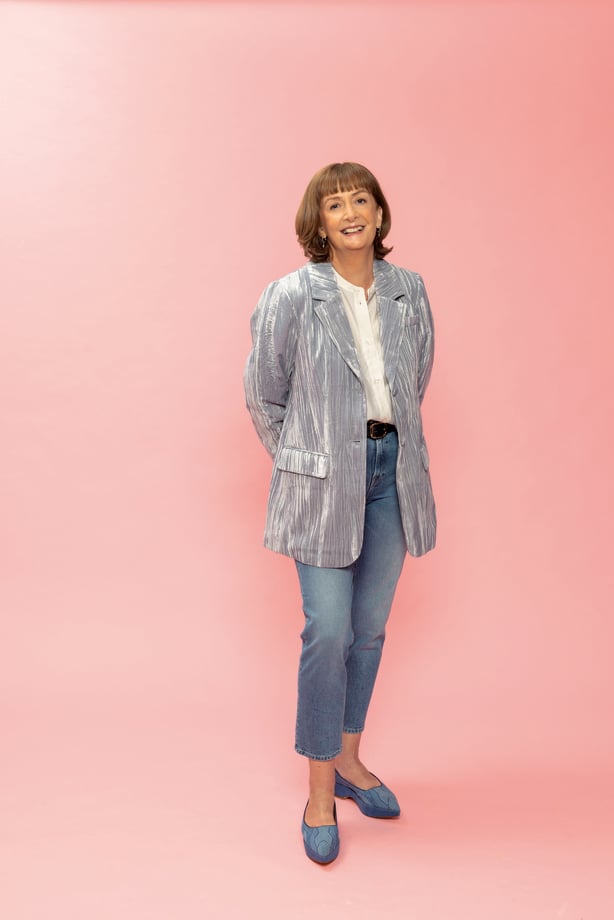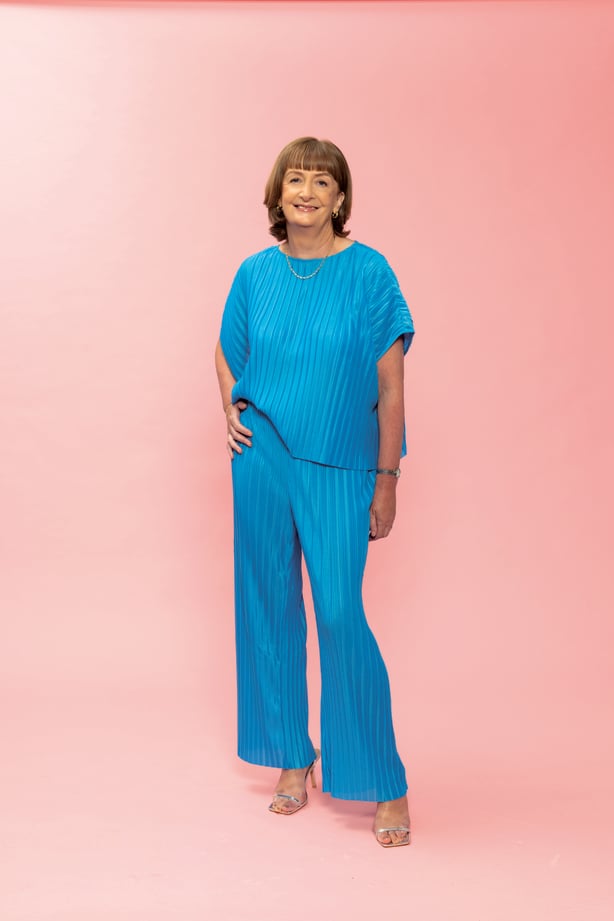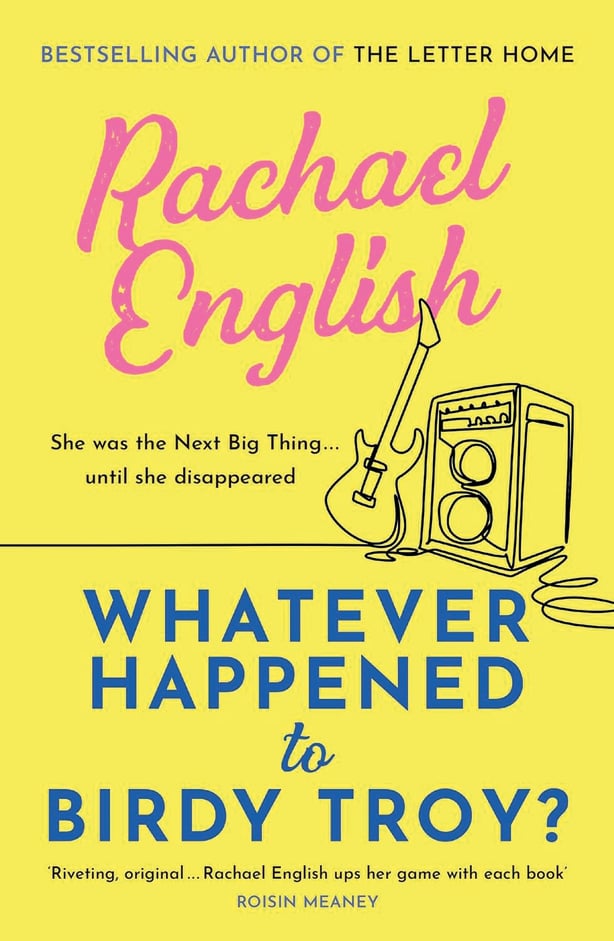As she settles in as host of RTÉ Radio's News at One, Rachael English talks to Claire O’Mahony about a life on the airwaves, finding time to write the occasional novel and her abiding connection to her hometown.
It’s a big week for broadcaster and writer Rachael English, as she steps into the News at One presenter seat vacated by the recently retired Bryan Dobson. Her feelings about the new job are a mixture of excitement and trepidation.
"I'm really looking forward to this because I've been doing Morning Ireland for 14 years; I always joke that I went for three weeks and stayed 14 years, which is true. I was supposed to be a stand-in for three weeks and it just kept getting extended. I'm really excited about this, but I am nervous about it as well because it's a big change. Although the News at One was the first programme I ever presented as a stand-in, that's a lot time ago."
What does she think the biggest challenge of her new role might be? "I suppose, for so many years now, I’ve had the comfort blanket of a co-presenter and it will be strange to be back in studio on my own. I’ve done it a million times before, but there’s still that feeling of 'Oh gosh, it’ll just be me and I’ll have to keep going’," she says.
"And it’s a different time of the day, maybe a slightly different audience and it’s just getting the feel for the programme really. It’s going to be a bit of a challenge but, you know, I think we have to give ourselves a shake every so often and this is it for me. It’s good to do something new."

What she won’t miss about presenting Morning Ireland, and something she’s joked about before, are the super-early starts.
"I suppose you can exaggerate the impact but realistically, nobody likes getting up in the middle of the night," she says. "But there is a kind of camaraderie in the news room that early in the morning, because there's a hardcore group of us and that does make for a great atmosphere. Even when people are grumpy, it tends to be in a humorous way. I won't miss getting up at 4am because there are times during the winter when the alarm goes and I find myself going, ‘I hate this, I hate this!’ But within 10 minutes, you can come out the other side."
Rachael’s illustrious broadcasting career began in 1989, as a presenter on Clare FM. She joined RTÉ 2fm as a newsreader in 1991 and stood in for presenters on a variety of shows, including News at One, and Today with Pat Kenny. In 2000, she became the presenter of Five Seven Live, a role she stayed in for six years, followed by stints on The Late Debate and Saturday View before making the move to Morning Ireland in 2010.
Over the course of her career, Rachael has presented election coverage, the Olympics and she has reported on some of the biggest news stories of the last two decades, including 9/11 and the signing of the Good Friday agreement in 1998. The other string to her bow is a successful writing career, with six critically acclaimed novels published to date.
She says she was always interested in the news, as a child growing up in Shannon in Co Clare. "I was one of those sad children who read the paper and liked listening to Radio One, even if it wasn't what was on the radio in the house. I just liked the sense of being out there and getting to tell stories and I also liked writing. I suppose that's what I thought that I would do if I had any ambition: it was actually to work for a newspaper."

There weren’t many media courses to choose from in 1980s Ireland and Rachael opted to study communications in DCU, at the time called NIHE Dublin. "I was possibly the first person ever from my school to go there because it was a very new college and it just wasn't a thing that people did. But it seemed to have the right mix of subjects and I just liked the sound of it," she recalls.
"Even though, at that stage as well, it was the mid-1980s, you could say there were no jobs in journalism, but there were no jobs in anything. Obviously, all that changed in the following years, but we didn't know that in 1986. So I suppose it was maybe an ideal time to do something, to follow your heart and I was lucky enough to be able to do that."
She admits that while she couldn’t wait to begin her new adventures in Dublin ("I ran out of Shannon when I was 17 – I was one of those ‘bright lights, big city’ youngsters who just wanted to go out and do things,") but over the years, she has realised how much her home place means to her.
"It’s very important to me," she says, not least because her parents, Ruth and Tony, are still there.
"I'm very lucky to have both my parents. My father will be 90 next month, so he's planning his birthday party at the moment," she says.
"That’s the main reason the place means a lot to me, but I don't know, it can be hard to explain. In my most recent book, Whatever Happened to Birdy Troy?, the town that the rock group is from is a fictional place called Steeltown.
"It is inspired by Shannon and anybody from Shannon who's read it immediately spots the connections and joins the dots between the two places. I think it was when I was writing it that I realised how fond I was of Shannon and what a big influence it had been on me and how lucky I was to grow up there at a time when we had a lot of freedom. It was unlike most other places in Ireland because it was a new town."

I wonder how she manages to combine the day job with that of being an author? This looks set to change, she thinks. "I was working part-time on Morning Ireland and now I’m going back to work full-time so I don’t know how that’s going to work. News at One is going to be my priority for the next while, not that I couldn’t ever see myself giving up writing, but I found, with the last book in particular, I got quite frazzled trying to combine the two. I felt like I’d just run out of headspace."
She’s already written 20,000 words of her next book. "It’ll have to sit in an untouched file in the computer for the next couple of months until we see how things go. It is such a busy, busy time in news, and it's very hard to look away. And I think if you start something new, you have to give it your full commitment; you have to focus on it 100%."
It sounds as if she’s very disciplined with her time, but she says only when she has to be. "I’m one of those people who feel bad about not fitting everything in. I am a list maker and sometimes I find myself going around with ridiculous lists, ones that nearly say ‘brush teeth’ and I’m not sure that’s a good thing. I get up in the morning and write lists and get that sense of satisfaction when you tick something off. I can be organised and disciplined, but I can also be very disorganised."

She lives in Dublin with her husband, Eamon Quinn, an economics writer and former business editor of the Irish Examiner. Much of her downtime is spent consuming books, both audio and printed, as well as podcasts. When she really wants to switch off, she’ll go to matches, football and hurling in particular.
"I support Clare and it's a good year for them. This year, I’ve been a very poor supporter but there would be years when you’re trying to fit in maybe seven or eight matches between league and championship."
Having been a familiar voice on radio for over 30 years, listeners probably feel that they know Rachael quite well. But is there a big difference between her public and private personas?
"They’re probably quite similar," she offers. "I think one of the things about doing radio is it can be very difficult to hide, so over a long period of time, probably your true self does come out. Am I interested in publicity or any of that? Obviously, I accept that it's something you have to do and as a journalist I’m especially conscious of that. Is it something that I feel particularly comfortable with? No, I far prefer asking the questions, but I would say, yes, anybody who listens to radio a lot probably has a good idea of who I am at this stage. Like I say, on live radio it's very difficult to hide. Even though you might think that you can stick to the script, you can't really."


